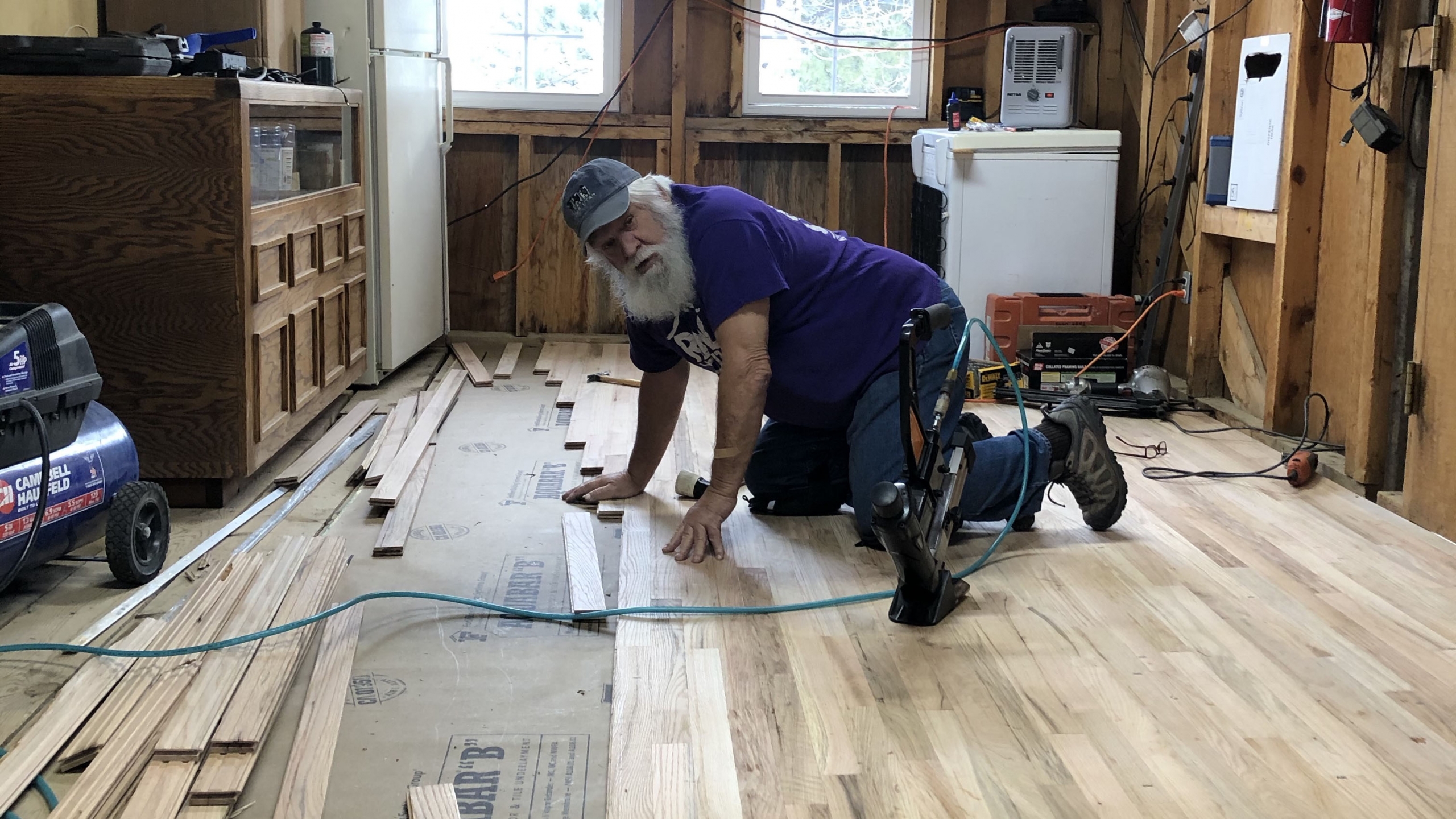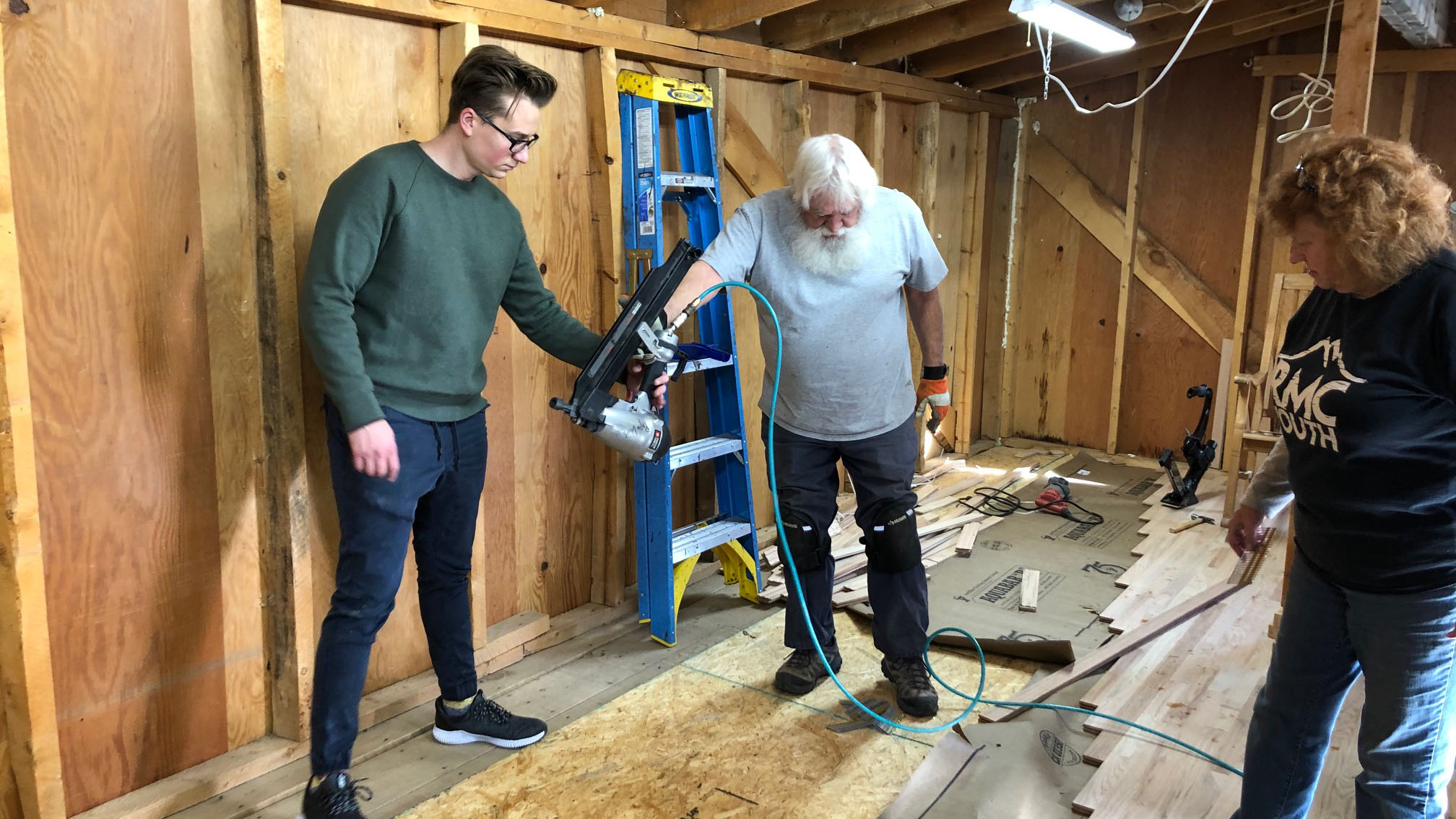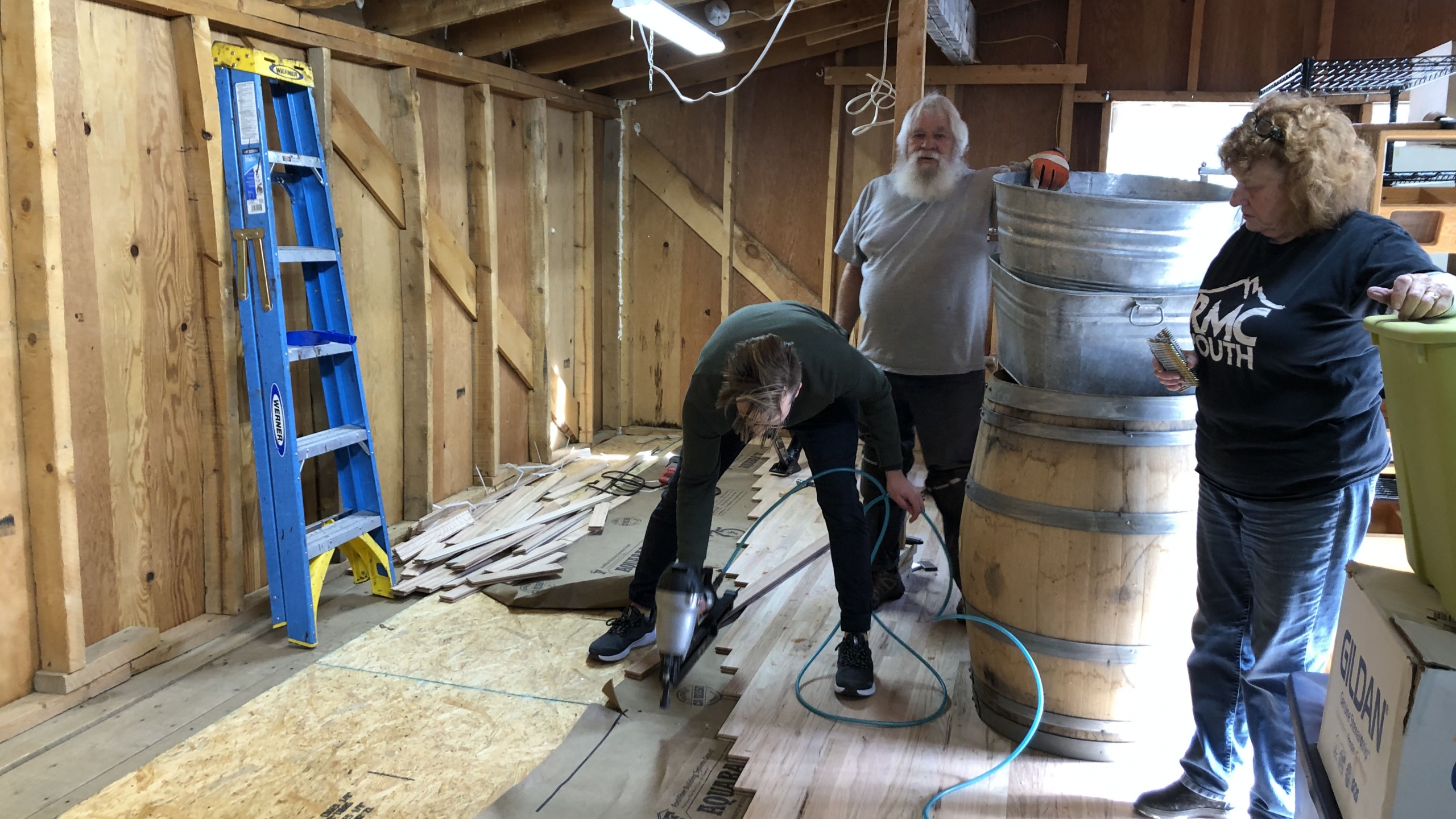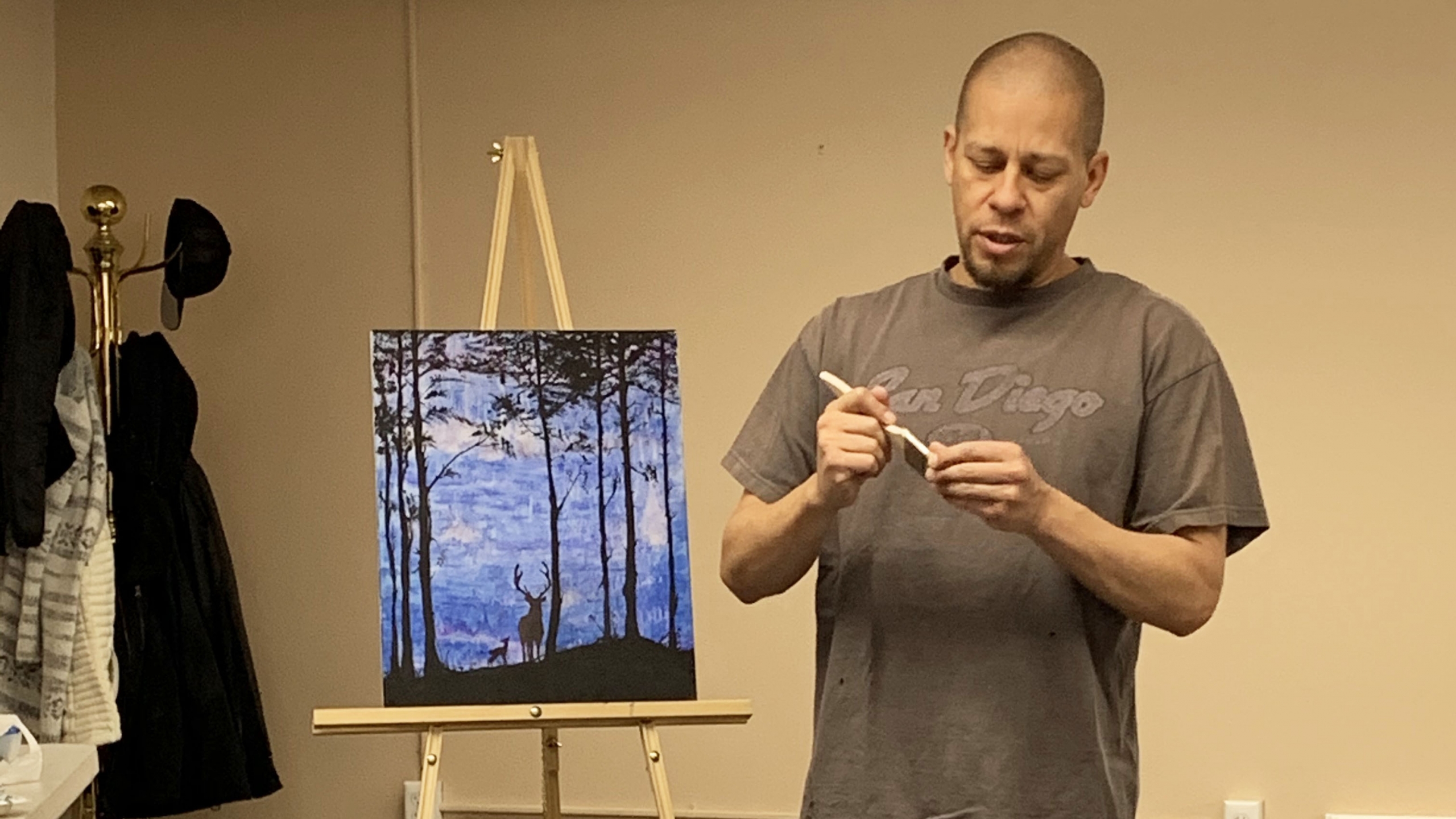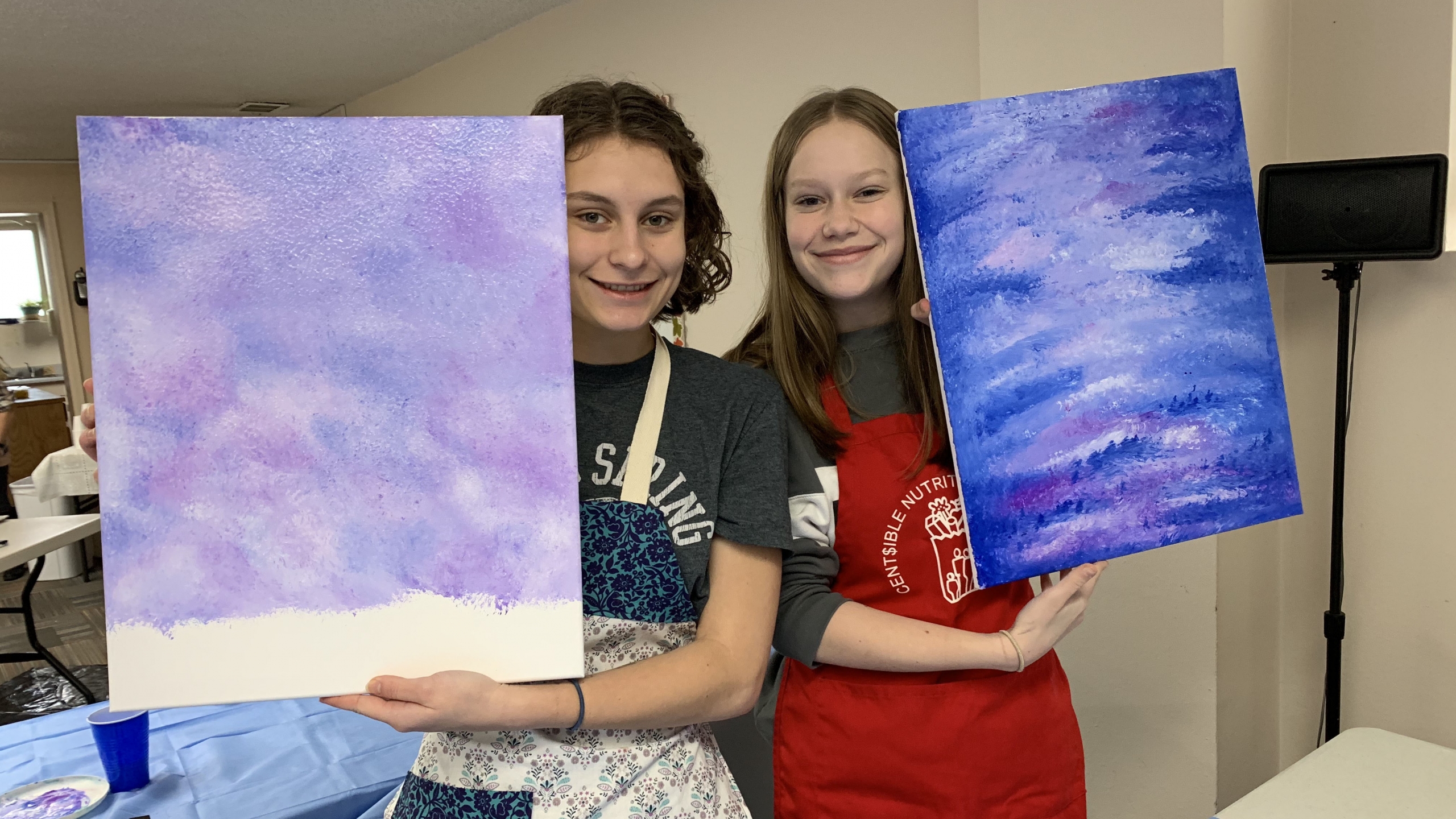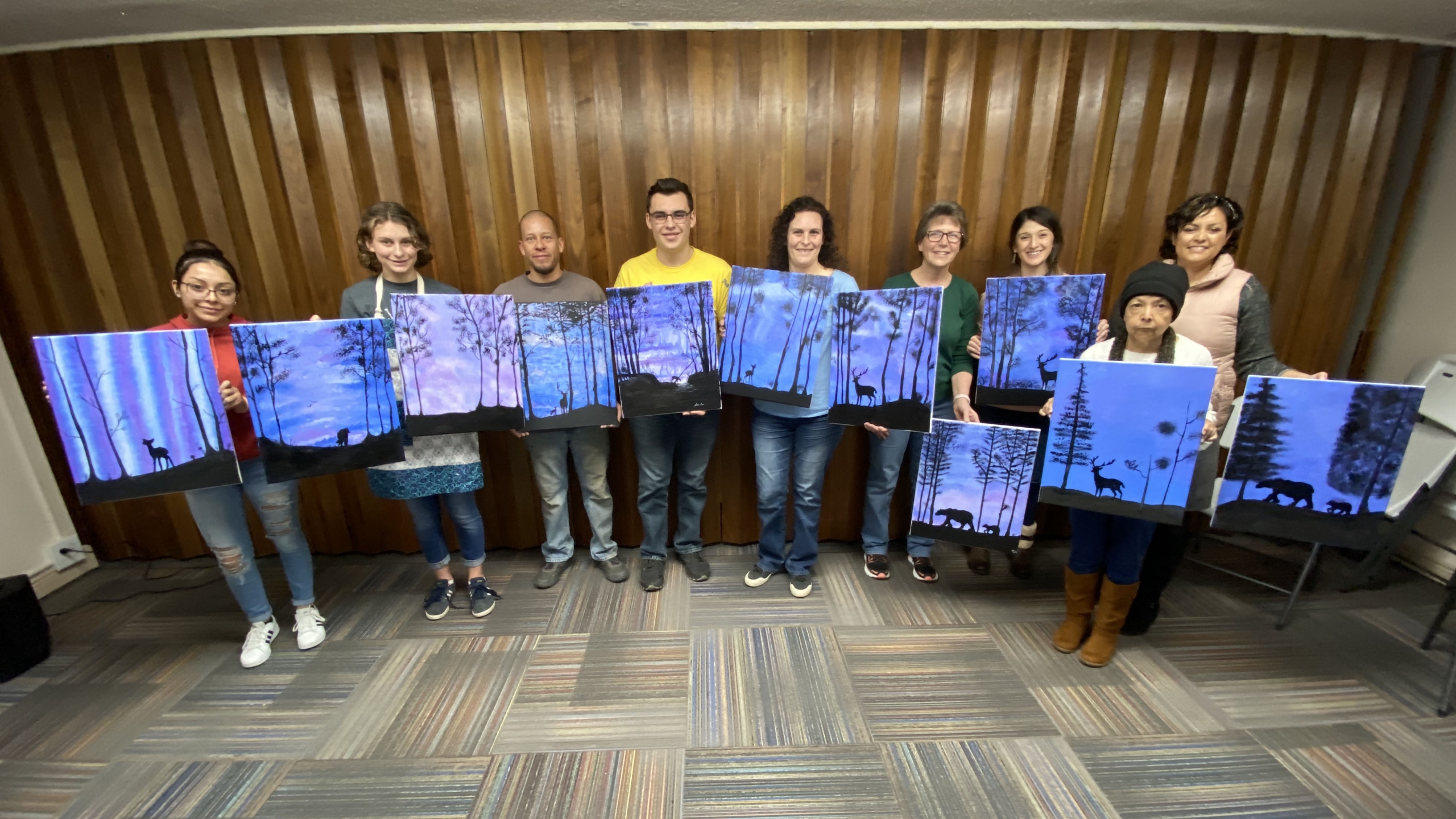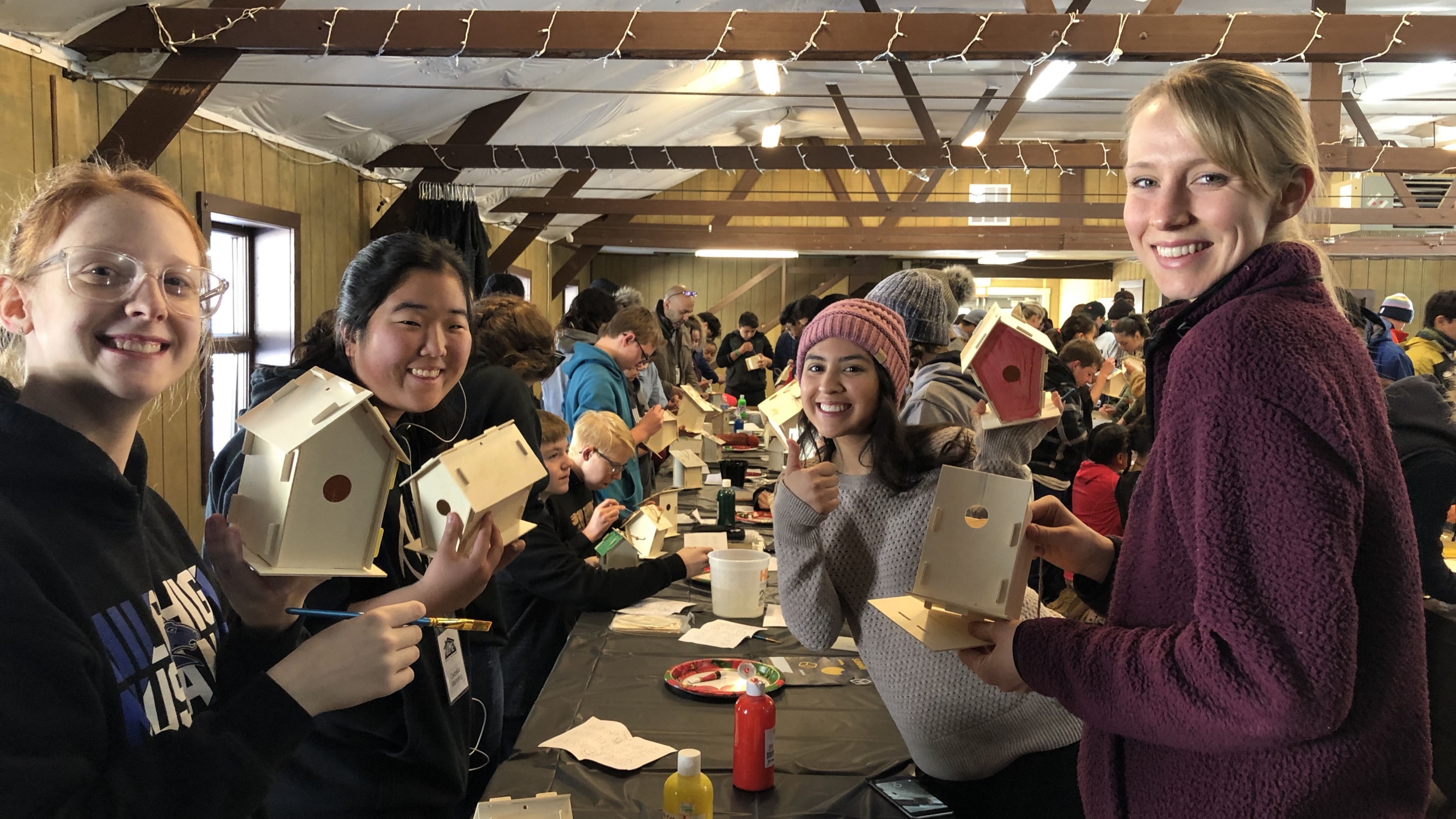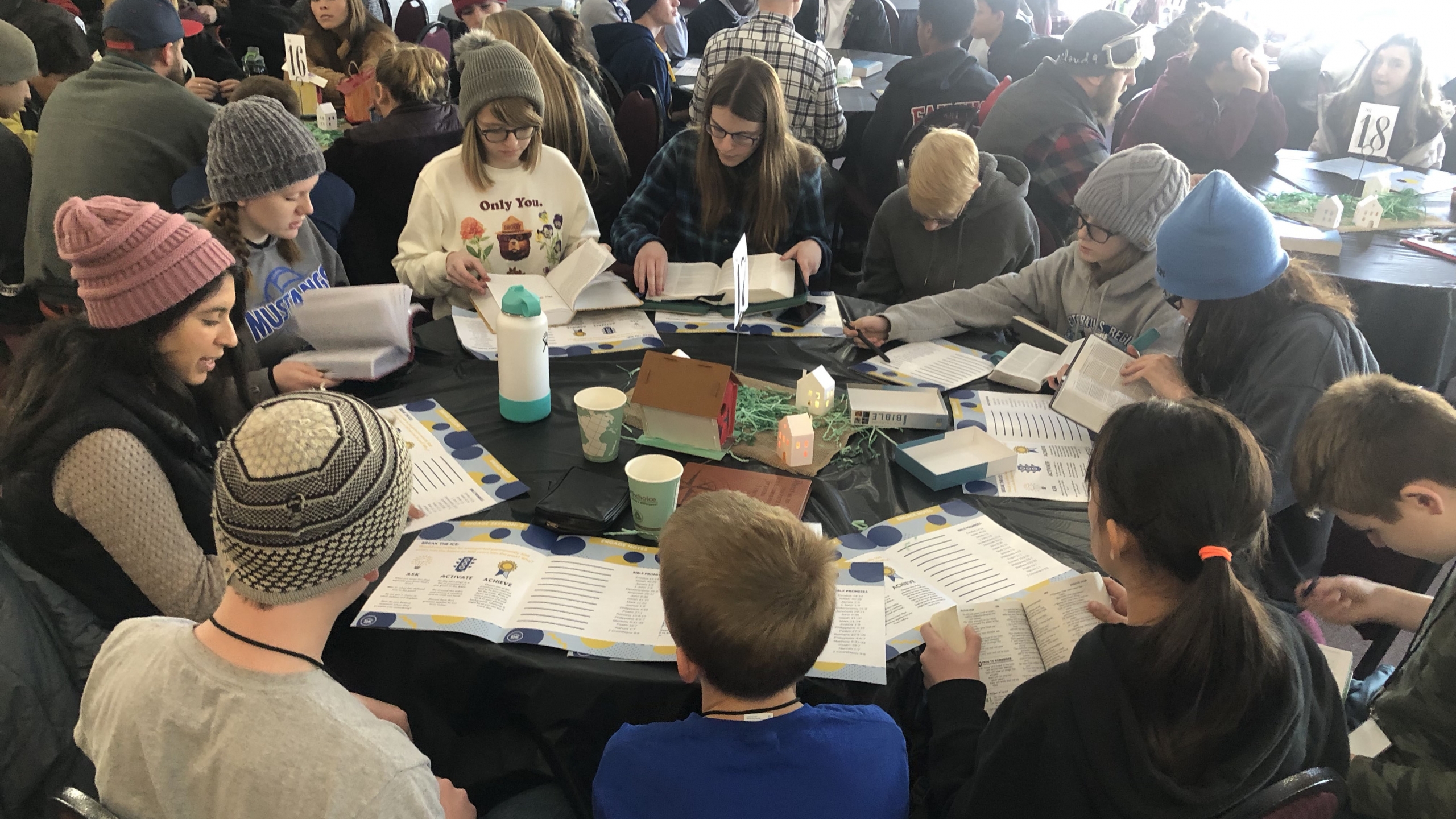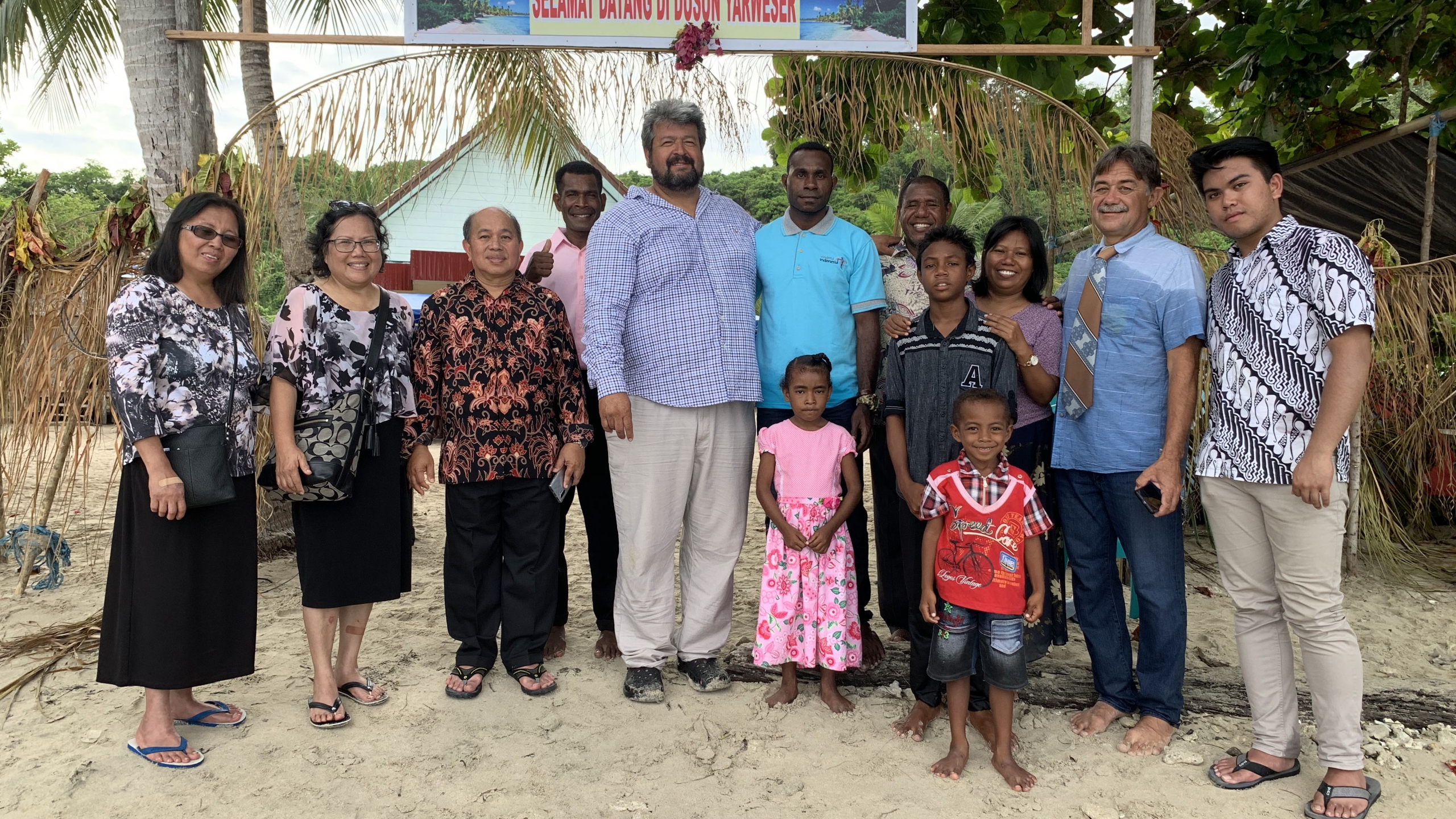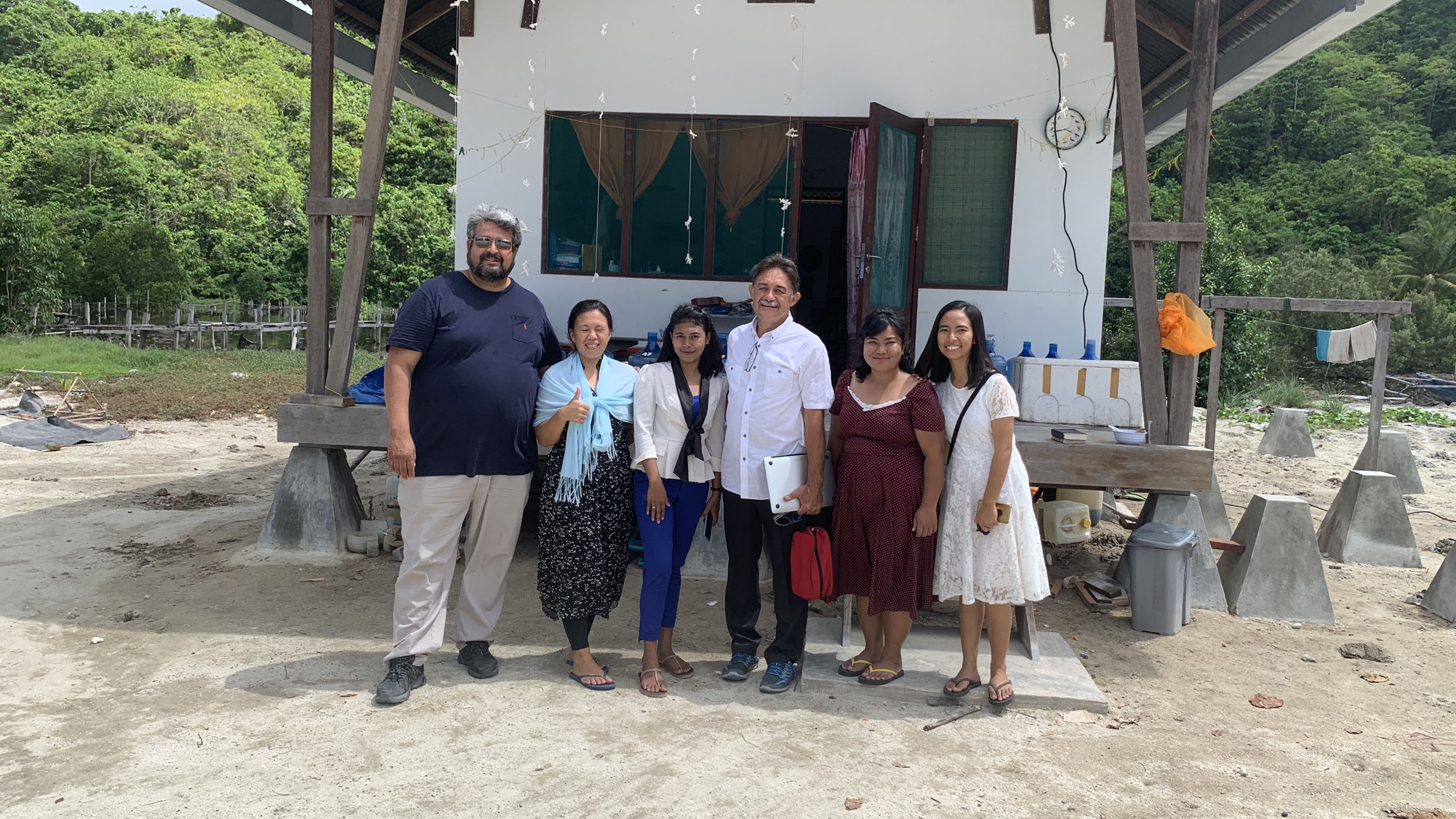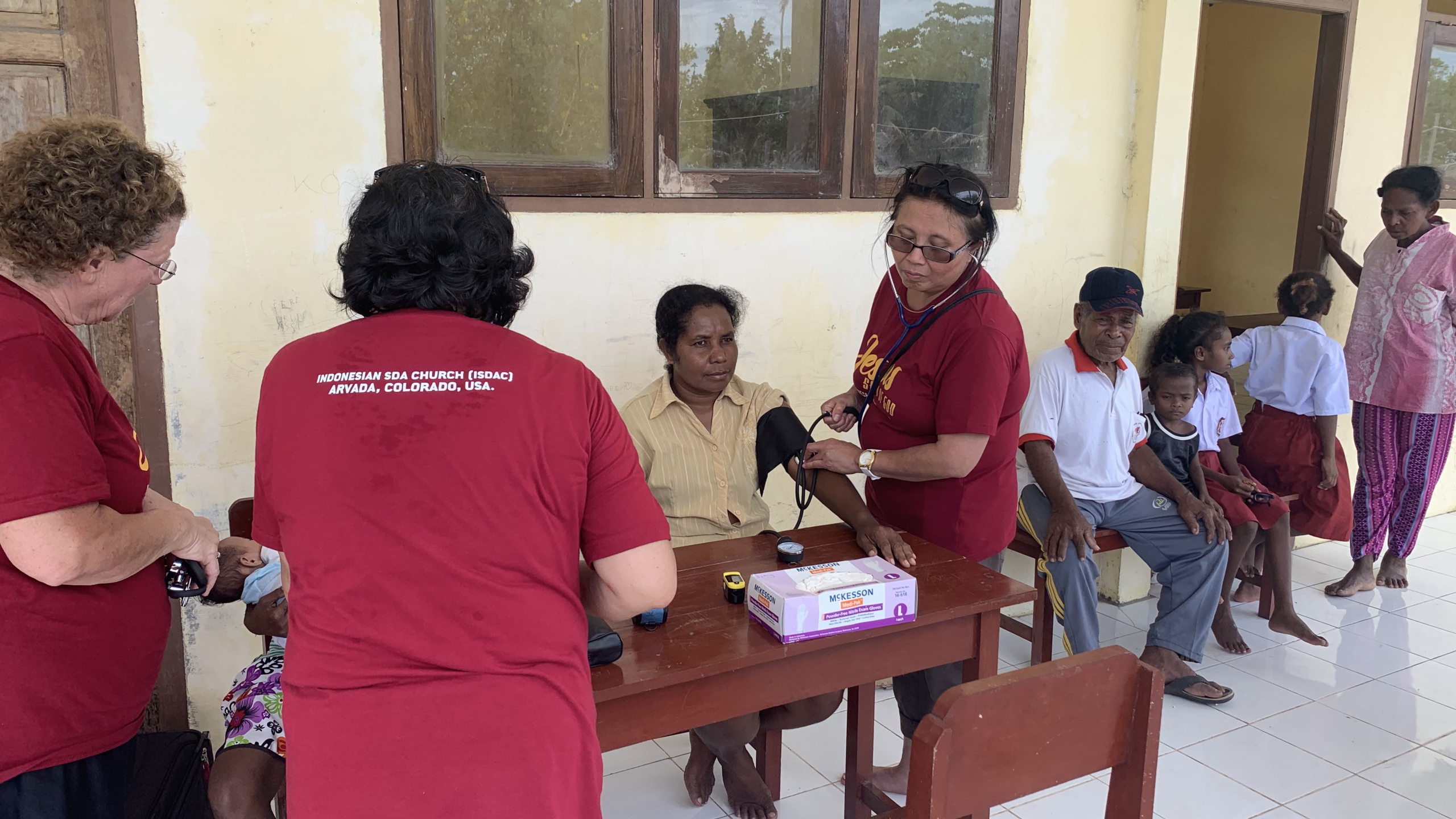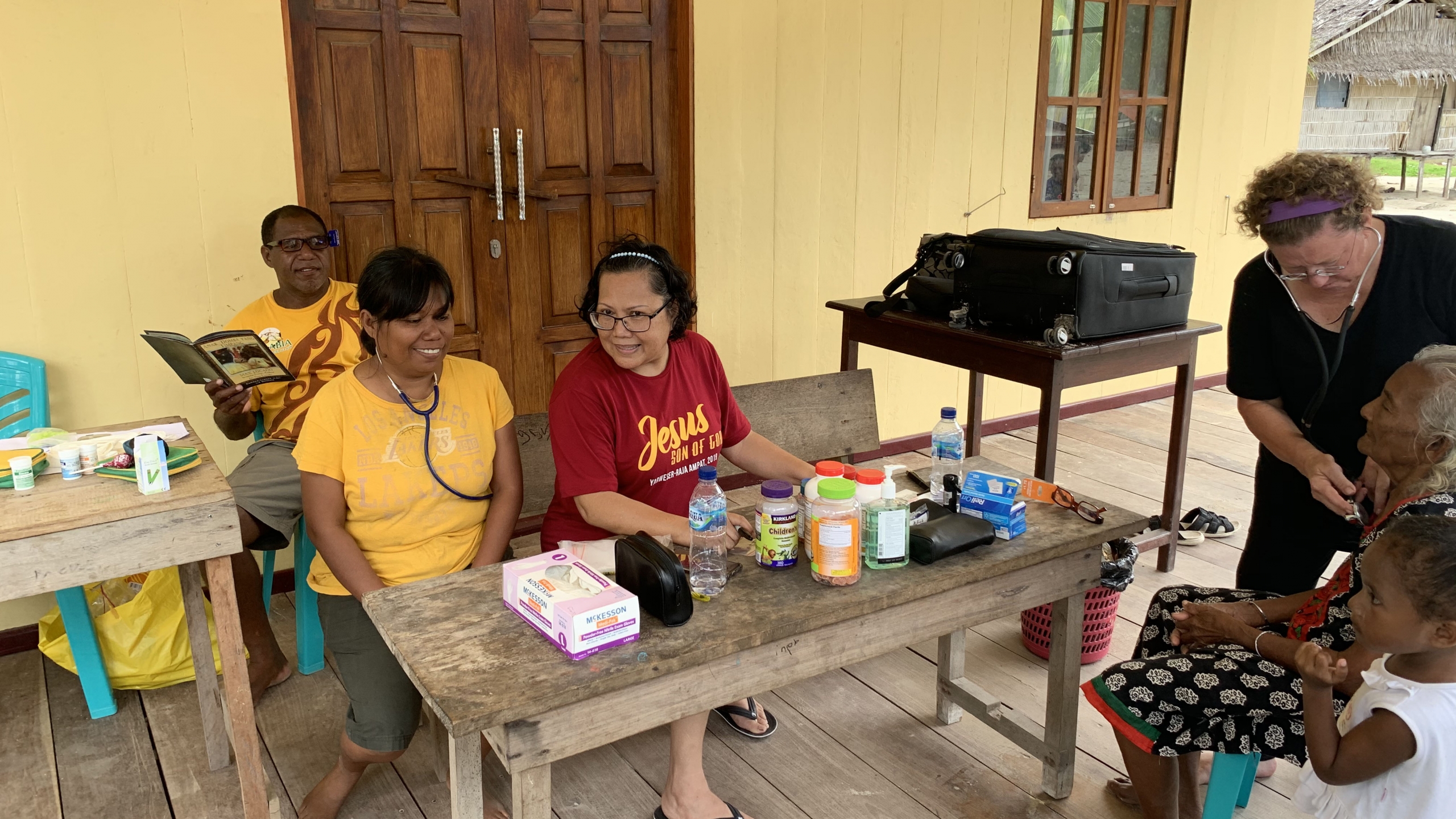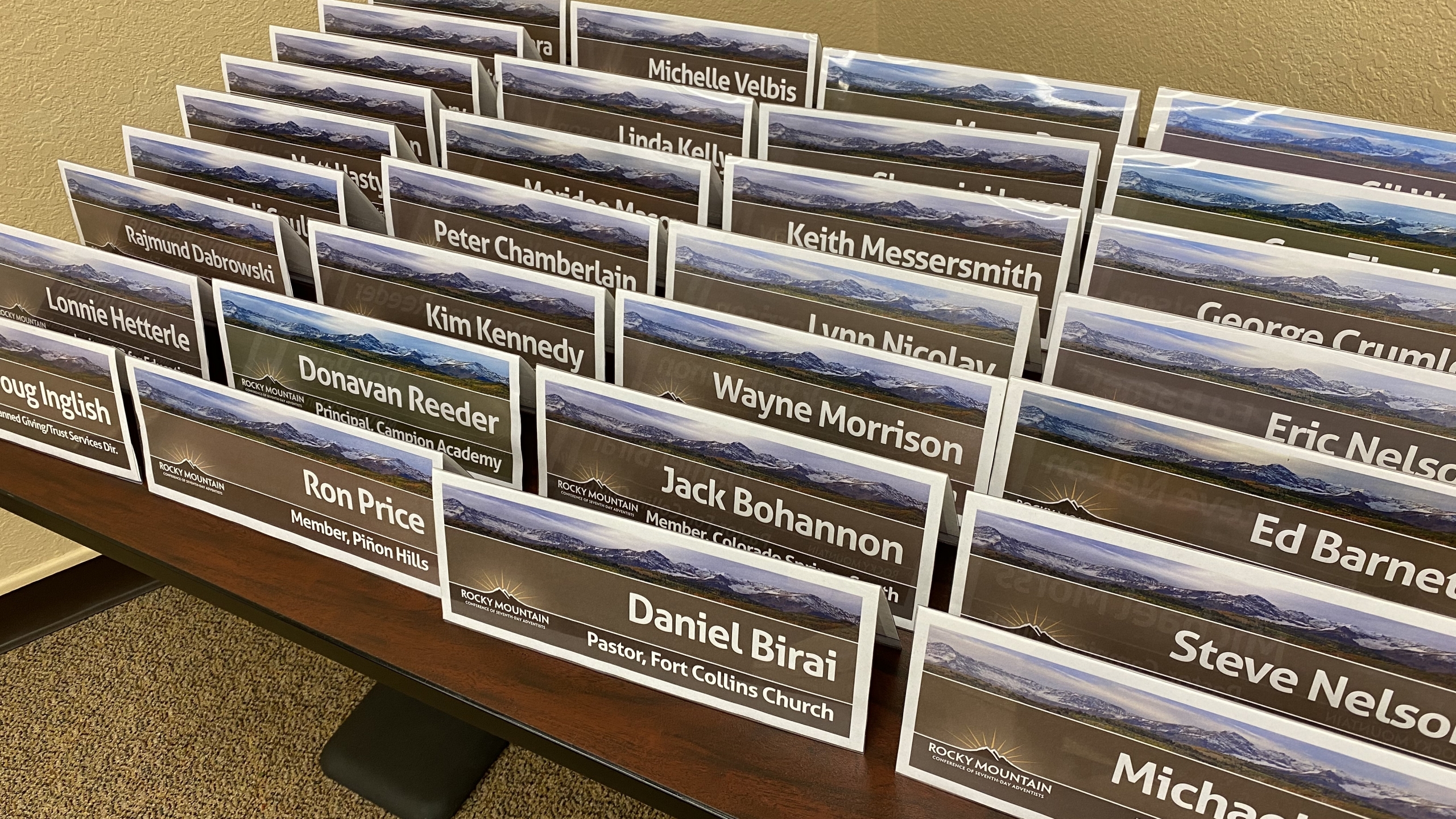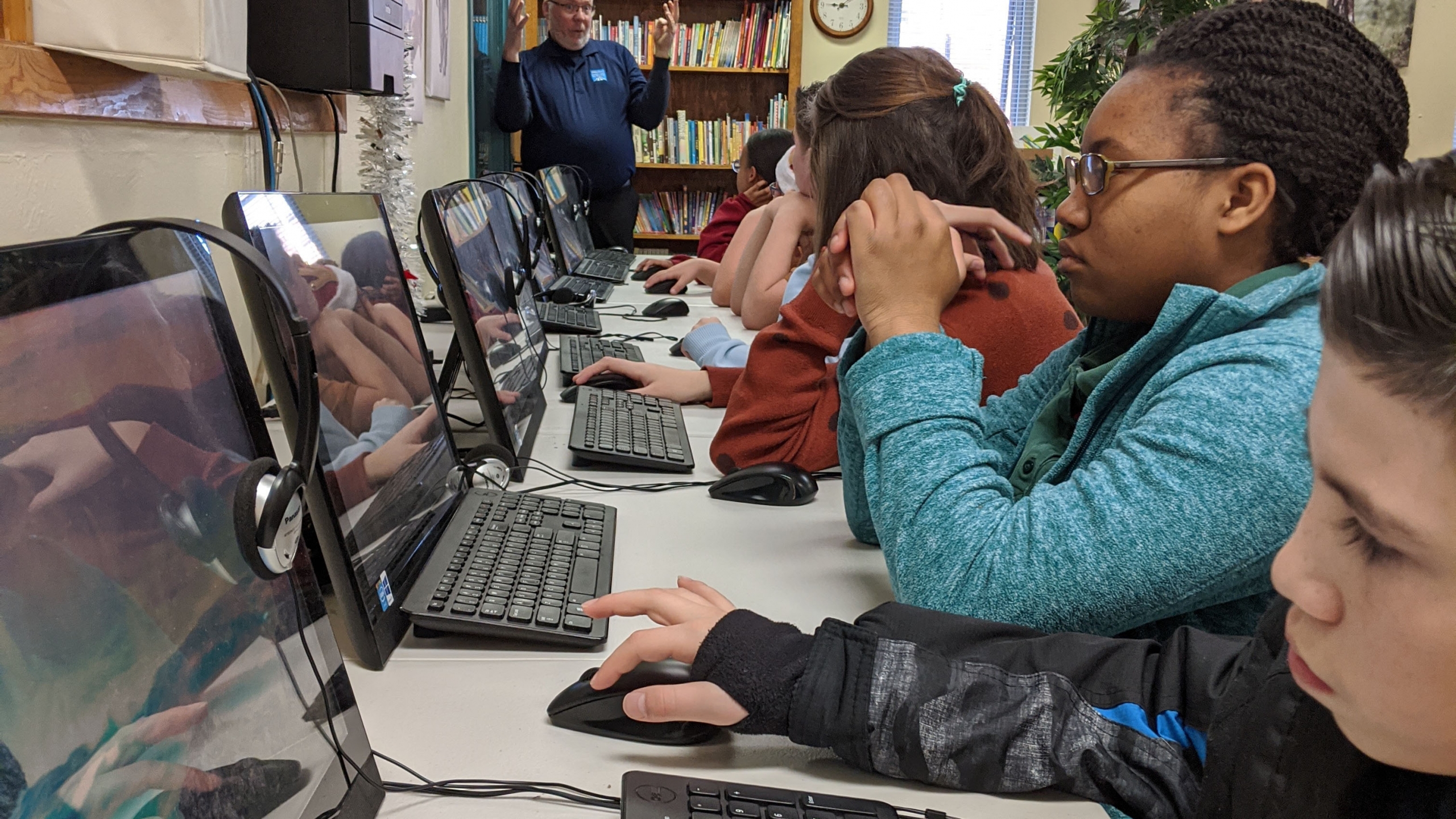Glacier View Ranch, Colorado … Camp store up at Glacier View Ranch is a hub during summer camp. Parents are able to reserve and purchase camp videos and photos. Campers are able to browse merchandise proudly bearing the name, Glacier View Ranch. And of course, the icecream. No one can resist a nice cold ice cream on a summer day in the mountains.
You might be thinking to yourself, “Do I have to be a camper to get to experience this?” The answer is yes, but not for long! “At the beginning of the summer, the camp team would order new items, unpack the old, and set up the whole store. Then, at the end of the summer all needs to be packed up because the building itself cannot keep out the dust and mice,” explained Jessyka Dooley, RMC associate youth director.
“Our dream in the Youth Department for this camp store is to have it open year round. Thanks to the skill and hard work of Chris and Don Hill, this dream is becoming a reality. They have been working around the clock laying new flooring, ripping out old and sagging shelves, putting in new windows, and filling in the cracks and gaps all around,” she added.
The youth team will run a smaller “pop up” store during RMC Ministerial Meetings and Greater Summit High School as they finish up needed renovation.
You can follow camp store updates on Instagram (@rmcyouthministry) and Facebook (@rmcyouth). New merchandise is being planned for the upcoming season at Glacier View Ranch.
—Jessyka Dooley; photos supplied by RMC Youth Depatment

